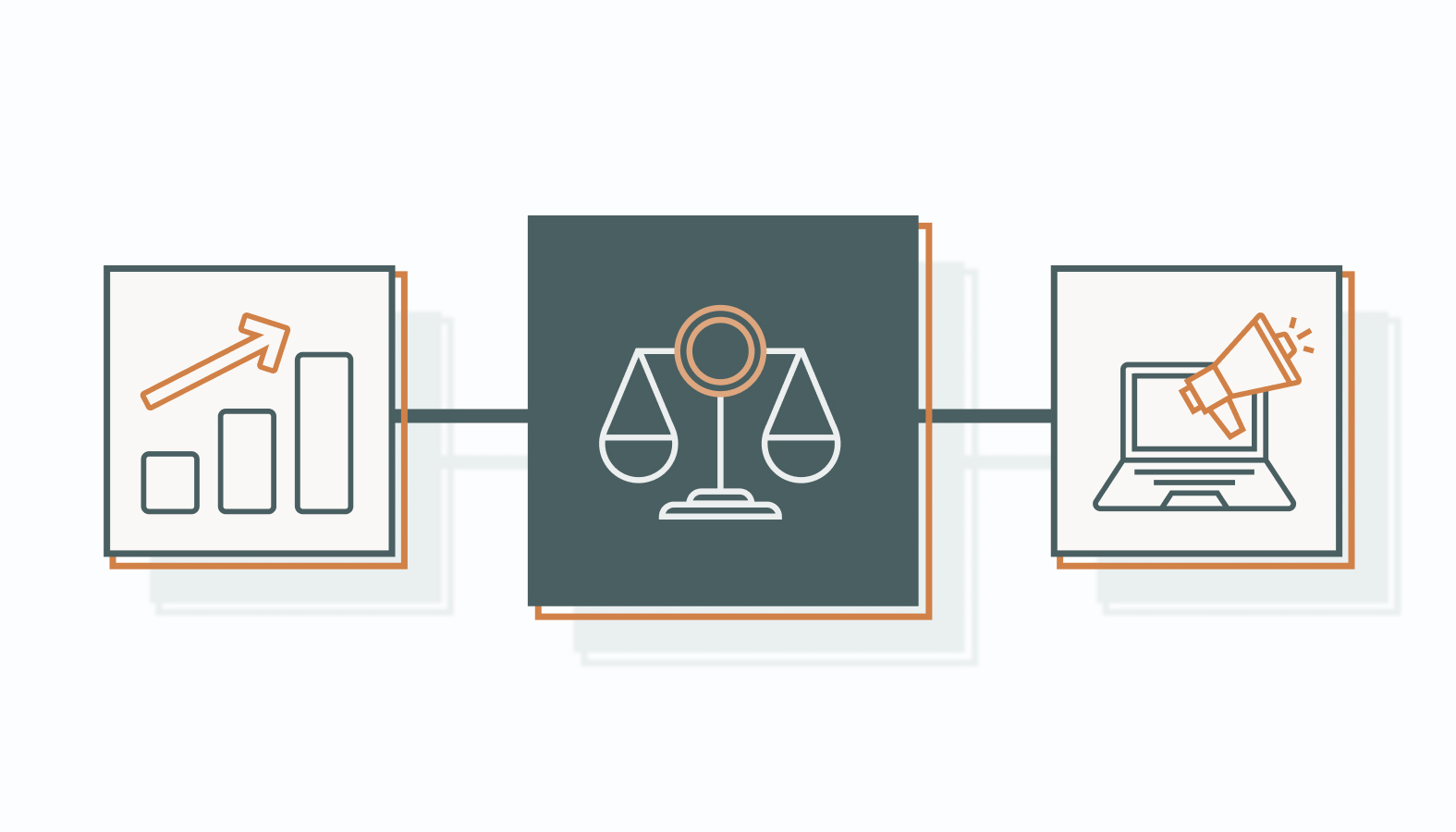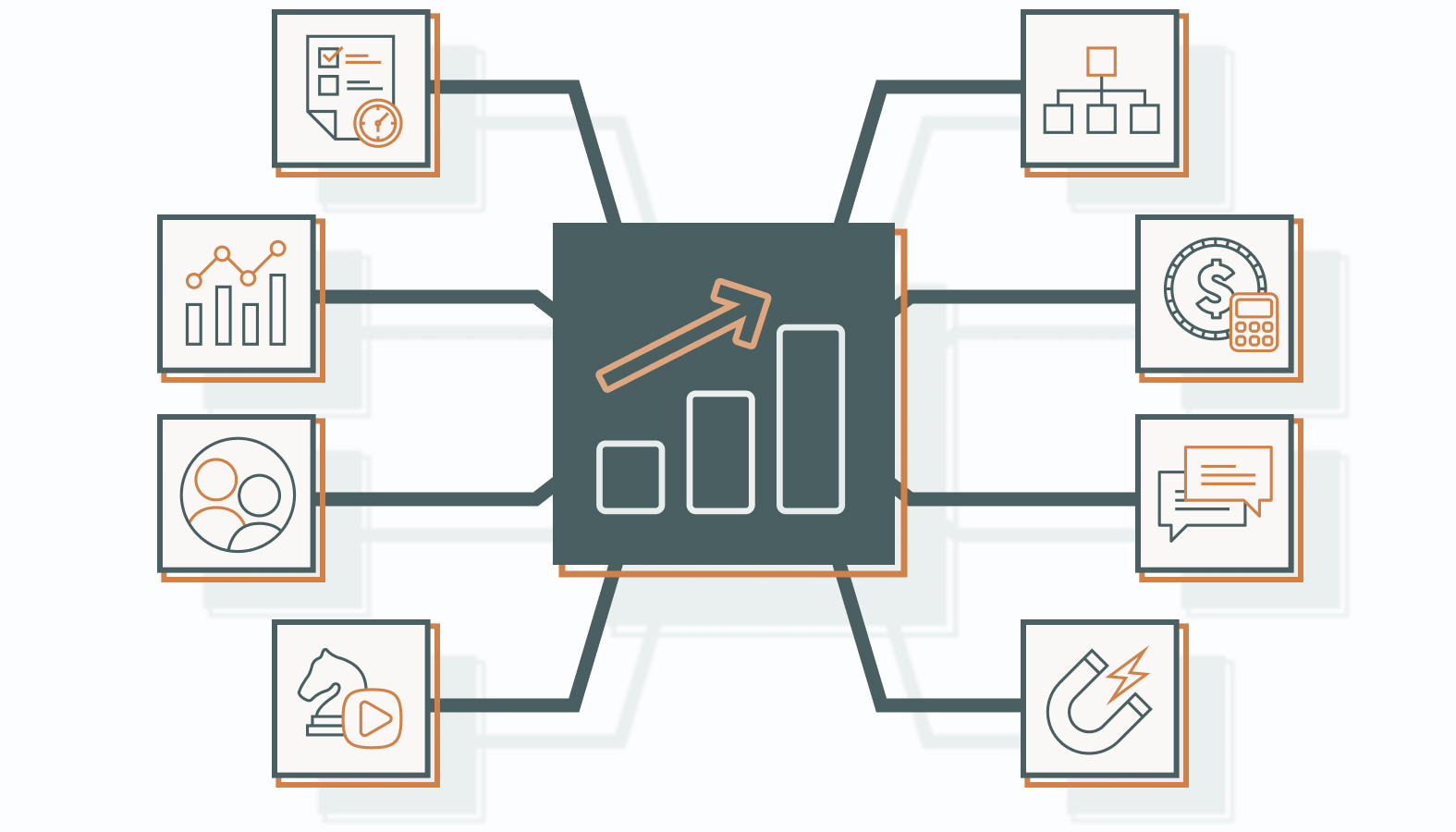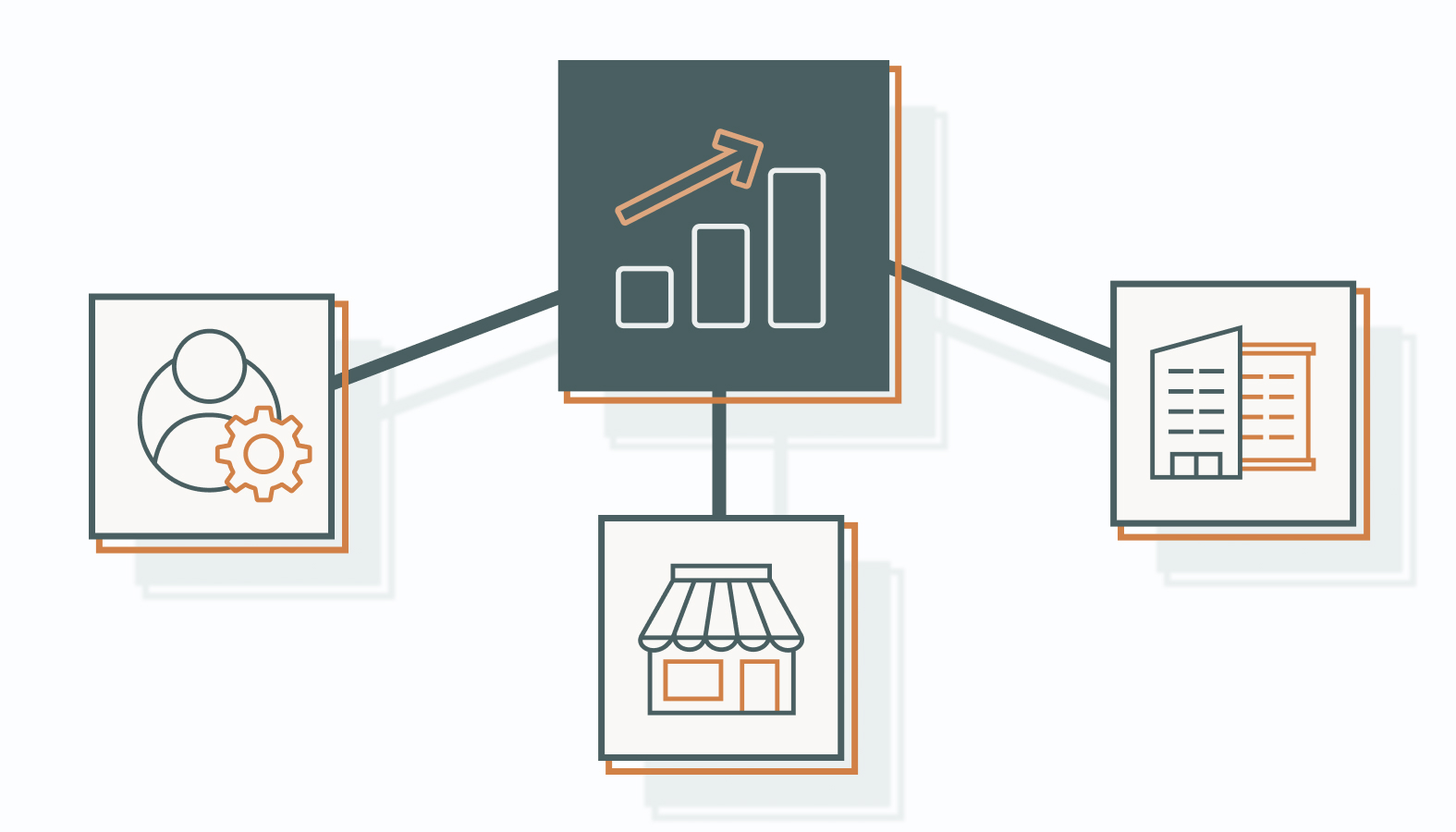In today’s business climate, growth demands precision. If your leads are crawling, conversions are flatlining, or your marketing mix feels more like a gamble than a strategy, you’re likely missing a critical piece: a growth marketing specialist.
These professionals don’t waste time tossing ideas into the void. They operate at the intersection of data, creative execution, and behavioral insight, building systems that learn, adapt, and scale rapidly. Think of them as the momentum engine of your business, transforming isolated tactics into compound gains.
If you’ve been stuck in the endless cycle of disconnected campaigns and an infinite loop of “random acts of marketing,” you’re far from alone. Many businesses run full speed in circles without a scalable structure for results. But here’s the good news: you don’t have to keep spinning your wheels.
Next, we’ll explore what a growth marketing specialist does, what makes them so effective, and how bringing one on board could be your most strategic move this year.
What Is Growth Marketing (and Why It’s Essential for Scalable Success)
In a market where speed and precision define success, growth marketing propels serious businesses forward. It’s the engine behind strategic expansion, market penetration, and sustained competitive edge.
The growth marketing specialist? They’re the architect, transforming insights into momentum and tactics into measurable impact.
How Growth Marketing Specialists Navigate Tech Shifts and Market Disruption
Growth marketing is ever-evolving. Every day, new technology, shifting consumer habits, and changing digital ecosystems reset the playing field. From AI-driven segmentation to innovative attribution models, specialists must adapt swiftly.
But watching trends isn’t enough. You need someone to decode the chaos and pinpoint what moves the needle. A growth specialist reads the signals, recalibrates strategy, and ensures forward motion never stalls. When algorithms pivot, or compliance standards shift, they already have Plans B and C ready. This level of precision transforms growth marketing into a disciplined business practice, not just a collection of clever ideas.
Key Responsibilities of a Growth Marketing Specialist
A growth specialist doesn’t just stick to performance marketing. They navigate the entire funnel with sharp focus and accountability.
While awareness is nice, outcomes are better. Their job is to drive scalable acquisition, boost retention, and grow revenue using repeatable, data-backed systems.
These specialists aren’t dabblers. They fluently speak analytics, automation, UX, and content. They can code a segment in SQL in the morning, run multivariate tests by noon, and brainstorm creatives before lunch gets cold. Their hybrid skill set makes them the connective tissue across marketing, product, sales, and success teams. They don’t chase attention; they engineer growth.
Growth Marketing Specialist vs Growth Hacker: What’s the Difference?
Don’t let the titles fool you; growth hackers and growth marketing specialists have different philosophies.
- Growth hackers thrive on speed. They run experiments, bend rules, and hunt for hacks that might spike users or traffic. This type of thinking is short-term and often detached from broader objectives. It’s helpful in a startup’s early days but not the foundation for long-term strategy.
- Growth marketing specialists take a mature approach. They build systems rooted in customer behavior, data integrity, and cross-channel cohesion. Their success isn’t about one-off wins but consistent performance, smart scaling, and strategic evolution.
The contrast shows in team dynamics, too. Hackers often work in silos, focused on short-term metrics. Growth marketing specialists thrive in collaboration, aligning closely with product, sales, and customer teams to create a unified growth engine.
Eventually, every business reaches a stage where the growth hacking phase burns out. Sustainable, intelligent growth follows: the specialist’s domain, where creativity meets operational discipline and strategy becomes a revenue machine.
Must-Have Essential Skills for Growth Marketing Specialists in 2025
Growth marketing doesn’t play by yesterday’s rules. To excel today, specialists need more than surface-level knowledge; they need tactical range, strategic thinking, and the agility to test, learn, and scale fast. The right skill set turns a good marketer into a growth engine.
Mastery of Tools and Tech
Great ideas fall flat without the right tools. A strong growth marketer knows their way around CRMs, email platforms, social media schedulers, and ad networks. These tools are essential for executing at scale with precision.
Fluency in SEO, PPC, and platforms like Google Analytics closes the loop between campaign activity and business results. It means knowing which levers to pull, when to pivot, and how to build data-rooted strategies instead of relying on guesswork.
Sharp Analytical Thinking
Growth lives in the data. You can’t improve what you don’t measure or scale what you don’t understand. The best growth marketers read analytics like a second language, pulling insights that drive real-time decisions.
Whether it’s dissecting A/B test results or predicting customer behavior with regression models, the ability to interpret and act on data separates scalable growth from one-hit wonders.
Creative Firepower and Forward Thinking
Creativity is a requirement. Crafting campaigns that stick, stories that resonate, and hooks that convert requires a mix of instinct, audience empathy, and calculated risk.
Innovation gives you an edge. Whether you’re exploring new platforms, tech, or tactics, that experimental mindset keeps your strategies fresh and your brand a step ahead of the competition.
A top-tier growth marketing specialist brings both sides of the brain to the table. Tactical tools and data-driven discipline meet creative courage and adaptability. That combination drives meaningful growth and keeps you from becoming outdated in a space that never sits still.
A Day in the Life of a Growth Marketing Specialist
Forget the predictable 9-to-5. For a growth marketing specialist, each day is a dynamic blend of data-driven strategy, creative problem-solving, and hands-on execution focused on one mission: sustainable, scalable growth.
Campaign Planning, Execution, and Optimization
First up: campaigns.
Every day starts with managing ongoing campaigns or launching new ones.
Whether managing a current rollout or starting a new one, growth marketers operate with a test-and-improve mindset. They constantly monitor performance signals, adjust messaging, reallocate budgets, and fine-tune targeting.
A/B testing is part of this rhythm, helping identify which creative, audience segment, or channel delivers better outcomes. The goal is to turn insights into improvements before the next refresh hits the calendar.
Data Analysis and Metrics Tracking
No strategy flies blind. Specialists closely monitor KPIs across email, paid media, social, SEO, and more, surfacing what’s working and what needs intervention.
Whether it’s click-through rates, conversion costs, or customer lifetime value, they know the numbers matter and track them accordingly. These numbers inform their decisions, not just for today’s campaigns but also for future plays.
Customer Segmentation and Personalization
Daily campaign refinement includes slicing audiences into meaningful segments based on behavior, demographics, or lifecycle stage to deliver campaigns that hit the right tone, at the right time, on the right channel.
Growth marketers know a one-size-fits-all message rarely converts.
Personalization is key in messaging, timing, channels, and offers, creating tailored experiences that deepen engagement and boost conversions.
Content Strategy and Creation
Content development is constant. Growth marketers collaborate with creative teams or roll up their own sleeves to plan and produce assets across platforms: emails, blog posts, social media, landing pages, and ads.
Creativity here is purposeful: each word and design element is deliberately built to connect with the audience. Every asset shares this core objective: to convert interest into action.
Cross-Functional Collaboration
Growth marketing touches nearly every department. Daily or weekly check-ins with product, sales, customer success, or design teams ensure that marketing campaigns align with company goals and that customer feedback loops are integrated.
This synchronized approach results in better messaging, smarter feature promotion, and aligned performance goals, ultimately optimizing the entire funnel from acquisition through retention.
Budget Oversight and Allocation
No day is complete without reviewing campaign budgets. Growth specialists track spend across channels, monitor pacing, optimize budget allocations in real-time, and course-correct when needed.
Whether reallocating funds mid-campaign or justifying new spend, marketers are always optimizing.
If the ROI doesn’t justify the spend, the strategy changes. Financial stewardship is part of the job description, ensuring every marketing dollar pulls its weight.
Reporting and Stakeholder Communication
Insight without delivery is a missed opportunity.
Growth marketing specialists prepare reports for leadership and stakeholders, summarizing results, insights, and proposed next steps.
These reports cut through noise with clear data visuals, sharp takeaways, and actionable recommendations that shape decision-making across the company. They’re not just updates; they shape decisions at the leadership level.
Community and Customer Engagement
Growth specialists also engage directly with their audiences. They keep a pulse on the front lines, monitoring sentiment, responding to customer feedback, and adjusting messaging based on what the audience is saying.
This engagement builds loyalty and fuels smarter marketing across the board.
Growth Marketing KPIs That Growth Marketing Specialists Own
A growth marketing specialist has one core responsibility: move the numbers that move the business.
Metrics are your proof of impact, your source of insight, and your best compass for strategy. But not all KPIs (key performance indicators) are worth your energy. The ones that matter are the ones tied directly to outcomes.
Core Growth KPIs to Track
Real growth KPIs demonstrate efficiency, predict sustainability, and indicate where to focus efforts or adjust strategy. These are the metrics every growth specialist tracks, reports, and relentlessly optimizes:
- Customer Acquisition Cost (CAC): The price tag for gaining a new customer. This efficiency metric must fit within your margin model and scale strategy. If CAC climbs too high, growth stops paying for itself.
- Customer Lifetime Value (LTV): The total revenue a customer generates over time. LTV should always exceed CAC. It’s the clearest indicator of whether your growth is fueling long-term profitability or just burning through budget.
- Retention Rate: A measure of how well you’re keeping customers. High retention usually means your product’s working, your onboarding’s solid, and your lifecycle marketing is doing its job.
- Churn Rate: The flip side of retention. If customers walk away faster than you bring them in, that’s not a funnel; it’s a leak. The churn rate is crucial for subscription-based or recurring revenue models.
- Conversion Rate: This shows the percentage of users who complete a desired action. Conversion rate optimization (CRO) is one of the fastest ways to squeeze more value out of your existing traffic and spend.
- MQL to SQL Progression: Tracks how effectively marketing-qualified leads become sales-qualified leads. It’s where marketing and sales alignment either shines or sputters.
Tying KPIs to Business Objectives
A growth marketing specialist never treats KPIs as isolated figures. Instead, they:
- Map each KPI to a business-level goal: For example, increasing LTV supports long-term revenue targets while reducing CAC boosts profit margins.
- Prioritize KPIs based on company stage: Early-stage startups focus more on customer acquisition cost (CAC) and conversion rates, while mature companies prioritize lifetime value (LTV) and retention.
- Balance short-term wins with long-term growth: Specialists track both performance (e.g., campaign ROI) and trajectory (e.g., customer retention trends) to achieve optimal results.
That’s why the right specialist doesn’t just track metrics. They understand what moves them, why they matter, and how to align them with your company’s bigger picture.
Next, we’ll discuss what to look for when hiring a growth marketing specialist, including skills, mindset, and red flags.
How to Hire a Growth Marketing Specialist: Skills, Models, and Mistakes to Avoid
A great growth marketing specialist can shift your business trajectory — but that only happens when you know what to look for, what to avoid, and how to align their impact with your growth stage. This guide will walk you through the real value they bring, the common hiring traps, and how to select the right model for your business.
Why Hire a Growth Marketing Specialist?
Growth specialists are not generalists; they’re engineers of scale. Here’s what they bring to the table:
- Strategic Growth Planning: They build marketing strategies that map to business objectives. Expect forecasting, funnel modeling, and long-range planning rooted in real-world data, not wishful thinking.
- Operational Efficiency: They eliminate drag. By optimizing tools, automating repeatable processes, and fine-tuning team workflows, they free your team to focus on what matters.
- Higher Marketing ROI: Growth specialists make your dollars work harder. Their playbook is built on test-learn-optimize cycles that quickly turn insights into performance improvements.
- Customer Engagement & Retention: Specialists don’t just chase clicks. They craft personalized experiences across the lifecycle that boost loyalty, increase retention, and raise lifetime value.
- Competitive Advantage: With agile methods and an eye on market signals, they help you pivot quickly and seize opportunities before your competitors even see them.
Hiring the wrong person or hiring the right one under the wrong assumptions can hinder progress before it even begins. Avoid mistaking industry experience for skill fit, failing to align on goals, and underestimating onboarding and collaboration time. That’s why matching the setup to your specific stage and needs is critical.
Choosing the Right Setup: Freelance, In-House, or Agency?
Not all growth marketing needs call for the same structure. Your company’s size, goals, and pace of execution should guide how you bring this talent on board.
| Model | Pros | Cons |
| Freelancer | Cost-effective, flexible, great for short-term needs | Limited bandwidth, inconsistent availability |
| In-House | Deep integration, long-term thinking, team ownership | Higher cost, longer ramp-up time |
| Agency | Scalable expertise, broader capabilities | Less control, potential for diluted focus |
Smaller companies often start by collaborating with freelance growth marketing specialists, then switch to in-house when growth becomes a core, ongoing need.
If faster execution or multi-channel scale is required, companies may shift to an agency model or a hybrid setup when tighter alignment between internal strategy and external execution becomes essential.
Traits to Look for (and Red Flags to Avoid) When Hiring a Growth Specialist
Whether you’re hiring for a full-time role or vetting a freelance expert, the right fit is about mindset and execution ability, not just a good-looking resume.
Key traits to look for:
- Strong analytical and problem-solving skills
- Proficiency with marketing automation, CRM, and analytics platforms
- A test-and-learn mindset with real examples of experimentation
- Ability to collaborate cross-functionally (not just marketing-side)
Red flags to avoid:
- Talking only in buzzwords or “hacks” with no data to back results
- Lack of familiarity with attribution, customer lifecycle, or CAC/LTV
- Overemphasis on vanity metrics like followers or impressions
Industry nuance matters, too:
- In B2B, look for specialists with account-based marketing experience, lead scoring, and long sales cycles.
- In B2C, prioritize those with deep funnel optimization, rapid testing cycles, and lifecycle marketing expertise.
The Integral Role of Growth Marketing in Modern Business
In a business world built on speed, scale, and accountability, growth marketing specialists are no longer a “nice to have”— they’re the engine room of sustainable success. These professionals blend data fluency with creative firepower, driving performance across the entire customer journey.
Growth marketing specialists build systems that learn, evolve, and produce compounding results. When the landscape shifts (and it will), they’re already adjusting the sails. The businesses winning in today’s market aren’t doing more; they’re doing it smarter, with growth specialists guiding the way.
Hiring the right one means you’re no longer left to guess. You’re building with intent, testing with purpose, and scaling with clarity.
Ready to Add Real Firepower to Your Growth Strategy?
If your growth has stalled (or worse, feels random), it might be time to hire someone who can turn chaos into clarity.
Whether you’re scaling a startup or fine-tuning a complex funnel, a seasoned growth marketer can help you find the gaps, tighten the process, and drive measurable results.
Curious about what that could look like for your business?
Schedule a candid conversation with one of our growth marketing specialists. No pressure. No slide deck. Just real talk about where you are, where you want to go, and how we can help you get there.
Let’s shape a strategy that moves the needle.










